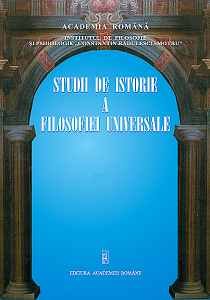Discovering Archetypes: Goethe and the Poetry of Natural History
Discovering Archetypes: Goethe and the Poetry of Natural History
Author(s): Ludovico ZizzoSubject(s): Aesthetics, Special Branches of Philosophy, 19th Century Philosophy, Philosophy of Science
Published by: Editura Academiei Române
Keywords: Goethe; archetypes; Naturphilosophie; aesthetics; German Post-Kantian philosophy;
Summary/Abstract: This paper engages Goethe’s studies in the natural sciences, especially his morphology, and the fundamental role that the concept of archetype (Urphänomen) plays therein. While recent scholarship focuses on the influence of Spinoza’s or Kant’s philosophy on Goethe, like Robert J. Richards (2002), and others, like Eckart Förster (2009/10; 2012) and De Laurentiis (2000; 2021), have underscored the mutual influence of Goethe and other key German contemporaries, like Hegel or Schelling, I contend alternatively, and on the model of Karl Löwith (1964), that it is important to acknowledge Goethe’s fundamental philosophical problems on their own terms. I argue that the defining motivation for Goethe’s natural scientific inquiry is the knowledge of human spirit but that the notion of an ‘archetype’ of the human fails in this crucial aspect, due to the inherent arbitrariness and undecidability of human history; and I read this as a productive contradiction.
Journal: Studii de istorie a filosofiei universale
- Issue Year: XXXII/2024
- Issue No: 1
- Page Range: 81-93
- Page Count: 13
- Language: English

